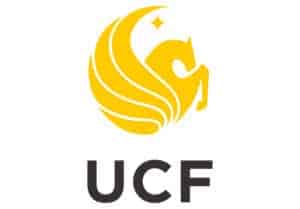Forensic psychology refers to a multidiscipline specialty in which law, thought, and human behavior intersect. The word “forensic” is derived from forensis – which in Latin means – Of the Forum – which is a reference to the Roman courts of law and the search for truth.
What is Forensic Psychology?
Since 2001, the field of forensic psychology has been recognized as a sub-specialty by the American Psychological Association (APA) within the larger psychological areas of counseling, clinical psychology, and school psychology. Forensic psychologists seek to ensure the just application of the law using psychological concepts within legal contexts.

Relevant topics within this psychology discipline include investigations and mental health issues as they relate to –
- Courtroom operations and the court system.
- Correctional facility operations.
- Social services/victim advocacy.
- Law enforcement, to name a few.
A professional forensic psychologist may perform tests and assessments to determine if someone is of sound mind or if there are biases at play in the legal system. Forensic psychologists work with lawyers and other legal professionals by helping them better understand how psychological factors may impact the outcome of a case. They may specialize in working on criminal, civil, or family cases. Forensic psychologists may also be utilized as expert witnesses as a part of a legal strategy.
Is an Online Forensic Psychology Master’s Worth It?
Forensic psychology grads have the skills to pursue a variety of criminal justice careers. Salaries vary and are dependent on the exact position, location, and the candidate’s education and experience level.
Jobs are available at every educational level, although students typically pursue postsecondary forensic psychology degrees that allow them to qualify for positions that have more responsibility and, thus, a higher salary.
Why Should I Earn My Forensic Psychology Master’s Degree Online?
Online programs for forensic psychologists are a great way to earn a degree at a pace that works for the student – based on their available time and schedules.
For those students who have a sincere interest in enrolling in one of the available master’s in forensic psychology online programs, and who otherwise work or care for a family, an online forensic psychology master’s program offers a flexible path to the final degree.
Forensic psychologists typically need to earn a doctorate degree if they wish to become licensed, and an online forensic psychology master’s degree is the perfect stepping stone for entrance into doctoral-level forensic psychology programs.
Types of Degrees and Specializations in Forensic Psychology
Earning an on-campus or online master’s degree in forensic psychology provides a variety of career opportunities. The position for which you qualify will depend on your education level. Forensic psychology degrees are available at the associate’s, bachelor’s, master’s, and doctoral levels.
Students interested in learning about these masters in forensic psychology online programs should focus on several factors regarding the program. Students, especially those considering doctoral work, are encouraged to confirm if the master’s degree in forensic psychology program is accredited.
Typical forensic psychology concentrations are limited at the baccalaureate level, although academic tracks become more diversified when completing a campus-based or online forensic psychology masters degree program. The following list offers a sampling of forensic psychology academic tracks and concentrations –
- Forensic Psychology for Non-licensure
- Forensic Psychology, Licensed Counselor Track
- Crisis Management & Leadership
- Forensic Psychology & the Law
- Criminal Justice
The American Academy of Forensic Science (AAFS) divides forensic psychology into eleven specialties –
- Jurisprudence.
- Engineering/Applied Sciences.
- Odontology.
- Toxicology.
- Anthropology.
- Criminalistics.
- Questioned Documents.
- Pathology & Biology.
- Forensic Nursing Science.
- Psychiatry/Behavioral Science.
- Digital/Multimedia Sciences.
What Will I Learn in an Online Forensic Psychology Program?
If you are enrolled in an online master’s degree in forensic psychology program, you will begin to study how human behavior and mental health relate to criminal behavior and the legal system. Students seeking a degree from an on-campus or online forensic psychology master’s program will delve deeply into the areas of criminal behavior and criminal law.
More specifically, these masters in forensic psychology online programs include coursework like –
- Human Development.
- Criminal Justice.
- Social Psychology.
- Applied Statistics.
- Criminal Psychology
- Criminology, to name a few.
Careers and Salary in Forensic Psychology
The 2021 median salary, according to the Occupational Outlook Handbook, was $81,040, which translates to $38.96 per hour. There were more than 180,000 professional psychologists working in the country that year. The Bureau of Labor States anticipates that the job market for psychologists will experience a 6% job growth through 2031. More specifically, the BLS anticipates about 14,000 new job opportunities each year for clinical psychologists over the next decade.
The following data represents the percentile information for clinical and counseling psychologists in 2021 –
| Percentile | Clinical/Counseling Salary |
|---|---|
| 10% | $ 47,010 per year |
| 25% | $ 62,040 per year |
| Median – 50% | $ 82,510 per year |
| 75% | $126,590 per year |
| 90% | $167,460 per year |
The states that offer the highest clinical and counseling salary options include –
| State | Clinical/Counseling Salary |
|---|---|
| New Jersey | $ 143,150 per year |
| Delaware | $ 129,450 per year |
| Oregon | $ 126,230 per year |
| California | $ 122,790 per year |
| New York | $ 120,350 per year |
The states with the largest number of employed clinical psychologists include the following –
| State | Number of Clinical/Counseling Salary Jobs | Clinical/Counseling Salary |
|---|---|---|
| California | 10,250 | $ 122,790 per year |
| New York | 4,220 | $ 120,350 per year |
| Illinois | 4,160 | $ 101,090 per year |
| Texas | 3,170 | $ 82,510 per year |
| Massachusetts | 3,120 | $ 92,110 per year |
The metropolitan areas with the highest clinical/counseling salary options are as follows –
| Metro Area | Number of Clinical/Counseling Salary Jobs | Clinical/Counseling Salary |
|---|---|---|
| San Diego-Carlsbad, CA | 1,050 | $ 136,630 per year |
| San Jose- Santa Clara, CA | 410 | $ 134,200 per year |
| Portland, OR & WA | 530 | $ 133,060 per year |
| Napa, CA | 170 | $ 130,540 per year |
| San Francisco-Oakland, CA | 1,660 | $ 129,880 per year |
Additional Masters In Forensic Psychology Jobs
Criminal Investigators – In 2021, there were nearly 108,000 criminal investigators and detectives working in the U.S. The median annual wage for these forensic psychology professionals was $83,640. The job growth over the next ten years for this job is expected at 3%.
Forensic Science Technicians – In 2021, there were 17,020 forensic science technicians working in the U.S. The median annual wage for a forensic science technician in the same year was $61,930. The job growth over the next decade for this job is expected at 11%.
Public Policy Shapers (Political Scientists) – In 2021, there were more than 6,000 political scientists/policymakers working in the United States. The median annual wage for a forensic science technician in the same year was $61,930. The job growth over the next decade for this job is estimated to be in line with the average of other occupations, at 6%.
Victim Advocates – The average victim’s advocate salary in 2022 for those working in the United States is $54,833 per year. The upper salary levels for a juror selection specialist exceed $115,000 per year.
Juror Selection Specialists – The average jury consultant salary in 2022 was $76,458 per year. The higher-end salary for a forensic psychologist who works as a victim advocate reaches in excess of $72,000 per year.
Trial Consultants – The average salary for a trial consultant in December 2022 was $89,092, which translates to $43.22 per hour. The top salaries for trial consultants in 2022 exceed $125,000 per year.
Do I Need a Master’s Degree in Forensic Psychology?
The need for a master’s degree in forensic psychology typically depends on your career objectives. While a degree in forensic psychology prepares graduates for many careers in the legal system and across the social work sector, this specific degree does not qualify a student to become a professional forensic psychologist.
Students interested in pursuing a professional career as a forensic psychologist can enroll in one of the master’s programs for forensic psychology that offer a licensure track to a doctoral program. These programs are designed to assist the student as they reach for a professional forensic clinical counselor’s license.
The American Psychological Association notes that to become a licensed forensic psychologist, the professional must possess a doctoral-level degree – a Ph.D. or Psy.D. degree. And the forensic psychology masters program should be accredited by –
In addition, this accredited doctoral program must also include two years of professionally supervised experiences – one of which must also be CPA or APA accredited.
Once the degree program has been completed, there are additional steps to complete prior to licensure.
What Can I Do with a Master’s Degree in Forensic Psychology?
If you have considered a professional career that includes human behavior and the law, it is likely you have asked yourself. What can I do with a Masters in Forensic Psychology?
Knowing which jobs for masters in forensic psychology degree holders is extremely important. These potential masters in forensic psychology jobs will depend on your training and career interests.
Graduates of forensic psychology programs may be interested in jobs in a wide variety of fields, including –
- Homeland Security
- Correctional Systems
- Law Enforcement
- Social Services for Offenders and Victims, to name a few.
Examples of forensic psychology jobs with a masters degree include the opportunities shown below. Note the diversity of these jobs for those who hold a masters in forensic psychology degree –
- Criminal Investigators – applies science to extracted facts that are used during criminal matters.
- Forensic Science Technicians – FSTs collect and analyze evidence that is used in criminal investigations.
- Trial Consultants – assist lawyers in presenting at a civil or criminal trial.
- Public Policymakers – policymakers are responsible for creating plans for government agencies and businesses.
- Victim Advocates – advocates for crime victims are trained to offer emotional support and resources to those in need throughout the criminal justice process. This position may include crisis intervention, navigation of medical systems as well as safety planning.
- Juror Selection Specialists – these forensic psychologists are experts in behavior. They help legal professionals present the best narrative as well as understand the jurors who may decide the case outcome.
Note that available master’s in forensic psychology salary opportunities will be contingent on the exact position and the specialty of the practitioner. These masters in forensic psychology jobs offer rewarding career options for those who want to merge the field of law, the judicial system, and psychology and human thought.
The next level of jobs for master’s in forensic psychology degree holders is the path to a doctorate degree in forensic psychology. A doctoral-level degree is a terminal degree and can be earned part-time while working in the field.
Choosing the Best Program for Me
Admissions
The majority of those entering a graduate forensic psychology degree program will hold a bachelor’s degree (as a graduate from an accredited institution of higher education) in one of the following related fields –
- Psychology – with a possible academic focus in criminal justice or a related field of study.
- Criminology or Criminal Justice – with a possible academic focus in psychology.
- A Related Social Science or
Accreditation
Deciding which forensic psychology masters online program is the best fit is an important and far-reaching decision. It begins by verifying if the graduate degree program of choice is anaccredited forensic psychology masters online program.
Accreditation acts as a process of quality assurance in the education arena. The process, which has been in use for more than a century, evaluates the operations and services offered through institutions of higher education. The analysis is based on a predetermined set of criteria and standards.
In the United States, there are two fundamental types of accreditation – regional and specialized accreditation.
Regional Accreditation
Regional accreditation is the oldest type of accreditation. These CHEA-overseen agencies are responsible for the assessment of a college or school to determine if the higher learning institution meets predefined standards established by the government agency.
Specialized Accreditation
Specialized accreditation is also known as programmatic accreditation. Accreditation that is specialized refers to the managerial oversight of academic programs contingent on industry-defined standards.
Forensic Psychology Accreditation
The American Psychological Association (APA) is the professional oversight agency that accredits graduate, PsyD (Doctor of Psychology), and Ph.D. (Doctor of Philosophy) clinical psychology programs. This accreditation includes degree programs that offer an academic track/focus in forensic psychology through the American Psychology-Law Society (AP-LS). Note that Canadian programs in forensic psychology are accredited by the CPA – the Canadian Psychological Association.
Students researching forensic psychology graduate degree programs are encouraged to research the schools of interest to determine if the school or program has received appropriate accreditation.
Financial Aid and Scholarships
Although policies and offerings differ from school to school, there may be financial aid and scholarships available to students who wish to study forensic psychology.
Scholarships, like student loans, help students pay for their education. Scholarships, however, do not have to be repaid, whereas student loans do. Scholarships may be offered by the school, the state, or a philanthropic person or organization who wishes to help someone pay for their education.
For those students who qualify, there may be financial aid available. Graduate students may be eligible to receive financial aid through the FAFSA. FAFSA offers access to federal, state, and even some higher education-based grants.
Certifications and Licensure for Forensic Psychologists
Forensic psychologists typically need to earn a doctorate degree if they wish to become licensed.
Once a forensic psychology professional has gained enough experience – which is typically defined by a minimum of five years of postdoctoral work, they have the option to become board certified by the American Board of Forensic Psychology.
Becoming a Board Certified by the ABFP
The American Board of Forensic Psychology, in partnership with the American Board of Professional Psychology, provides individual certifications to professional forensic psychologists. Specifically, to become a licensed clinical psychologist must meet the following requirements –
- Hold a doctorate-level degree from an accredited institution of higher education.
- At least 100 hours of supervised training, specifically in the field of forensic psychology.
- A minimum of 1,000 hours of professional experience in the field of forensic psychology.
In addition, this board certification process also includes a review of their credentials, plus –
- A written examination
- An oral examination
- A board vote to gain approval.
Online Master’s Program in Forensic Psychology
1. Arizona State University

ASU offers a Master of Science degree (MS) in Forensic Psychology that requires the completion of eleven online classes or 33 credit units and prepares students for doctoral work. Arizona State University ranks first in the country for innovation. Classes for Arizona State University’s online master’s degree in forensic psychology include advanced legal psychology, psychopathology, advanced correctional psychology, research methods, and the psychology of criminal investigation, among others.
2. California Baptist University

The College of Behavioral and Social Sciences California at Baptist University offers a Master of Arts (MA) degree program in Forensic Psychology that prepares degree candidates to provide important psychological services within the criminal justice system. CBU’s forensic psychology master’s degree program can be completed in two years, with the second year offering students field experience with on-site supervision. Previous candidates of CBU’s online program have worked with the U.S. Marshalls, the Federal Bureau of Investigation, and in mediation, among others.
3. CUNY (The City University of New York) John Jay College

John Jay College at CUNY offers a Master of Arts degree (MA) program in Forensic Psychology that prepares degree candidates to serve victims and offenders within the criminal justice system. Students must complete John Jay College’s 42 credits to meet program requirements – with three credits earned by submitting a thesis or prospectus – or an approved externship. Coursework for John Jay College’s online program includes criminal psychological assessment, brain & behavior, and psychopathology, among others.
4. Northcentral University

Northcentral University offers an online Master of Science degree (M.S.) in Forensic Psychology that offers students two academic tracks – General Forensic Psychology or Threat Assessment and Management. Northcentral University’s forensic psychology master’s program requires candidates to complete ten courses for 30 credits over a sixteen-month period. Classes for Northcentral University’s graduate degree in forensic psychology begin each Monday, so students can begin the program at their convenience. Career potentials for graduates include behavioral analyst, human services manager, or College Professor, among others.
5. Nova Southeastern University

NSU’s (Nova) College of Psychology offers a Master of Science degree (MS) in Forensic Psychology that prepares students for careers in a field that may include criminal justice, the justice system, or the legal system. This forensic psychology master’s degree is available 100% online and can be accessed from anywhere in the world. The program from Nova Southeastern University requires the completion of 12 classes for a total of 36 graduate credit units.
6. Oklahoma State University

Oklahoma State University (OSU) offers a Master of Science degree (MS) in Forensic Sciences with an academic track in Forensic Psychology that can be completed entirely online. Graduates of OSU’s 30- credit online forensic graduate psychology degree find rewarding careers in law enforcement, agencies, and other business sectors. With approval, Oklahoma State University’s forensic psychology graduate degree program can be completed on a non-thesis track. However, it is noted that this non-thesis track requires 32 credits.
7. Purdue University Global

Purdue University’s Global Campus offers an online Master of Science degree (M.S.) in Psychology that provides students with a concentration in forensics. This program requires two years of full-time study. Purdue University’s Global Campus graduate degree is offered with multiple start dates across the year. Coursework includes life span development, applied statistics for psychology, and foundations of professional psychology, to name a few. The exact requirements depend on if the student chooses the capstone or thesis track.
8. Southern New Hampshire University

Southern New Hampshire University offers an online Master of Science degree program (MS) in Forensic Psychology that requires students to complete 36 graduate credit units to meet the program’s requirements. Graduates find rewarding work in a variety of social service agencies as well as the criminal justice system, etc. Sample classes for SNHU’s online forensic psychology master’s program is a multidisciplinary degree where law, assessment, and psychology intersect.
9. The University of Central Florida

The University of Central Florida’s College of the Sciences offers a Master of Science degree (STEM designated) in Forensic Psychology that requires 32-34 credit units – depending on the student’s exact track. The University of Central Florida’s online graduate degree in forensic psychology is designed for those who seek full-time study or want to work while earning their degree. This program offers three academic tracks – Forensic Biochemistry, Forensic Professional and Forensic Analysis.
10. The University of North Dakota

The University of North Dakota offers a Master of Arts degree program (MA) in Forensic Psychology that has been ranked the top online graduate forensic program in the nation. This 30-credit program from the University of North Dakota is completed in two years, on average, and has no residency or GRE requirements. Coursework for the graduate program includes psychology and the law, diversity psychology, behavior pathology, and advanced social psychology.
Professional Organizations in Forensic Psychology
Professional organizations are designed to support the professionals in the field in which it serves. Most disciplines have these support organizations that offer a variety of benefits which include –
- Continuing Education.
- Networking Opportunities.
- Workshops for Professionals.
- A Platform on which to Publish Research In the Specific Field.
- Grant Opportunities, among many other benefits.
The following are the primary professional organizations that support forensic psychologists –
The American Psychological Association
The APA is the psychological field’s leading professional organization. Its mission is to create and apply the science of psychology by improving and promoting psychological research. In addition, the APA sets forth psychological qualifications for professionals and an industry code of ethics. The American Psychological Association operates a separate division devoted to the forensic psychology specialty, which includes its own conduct and research guides.
The American Psychology-Law Society
The APLS (aka Division 41) is a part of the APA and is an academic organization for those who are interested in how psychology applies to the law.
The American Academy of Forensic Psychology
The American Academy of Forensic Psychology operates as a professional organization for forensic psychologists who have earned ABFP board certification. Earning board certification automatically makes the professional eligible for ABFP admission.
The American Board of Forensic Psychology grants board certification to those who can demonstrate the legal, theoretical, and ethical tenets of forensic psychology. The ABFP offers professional support by way of workshops, research, job opportunities, and grant programs, among others.
The American Academy of Forensic Science
The AAFS (or the American Academy of Forensic Science) is a multidiscipline professional organization with more than 6,500 members from all states and 71 international countries. The American Academy of Forensic Science divides the specialty into a dozen sub-fields which include
- Jurisprudence
- Engineering/Applied Sciences
- Odontology
- General
- Toxicology.
- Anthropology
- Criminalistics
- Quested Documents
- Pathology & Biology
- Forensic Nursing Science
- Psychiatry/Behavioral Science
- Digital/Multimedia Sciences
The American Academy of Forensic Science offers various benefits to aid in professional development, offering recognition and rewards. The American Academy of Forensic Science publishes its Journal of Forensic Sciences regularly, which has been recognized internationally for the excellence it brings to the field. Plus, this organization offers job listings that may include referrals for expert witnesses.
Related:
25 Highest Paying Online Masters Degrees

